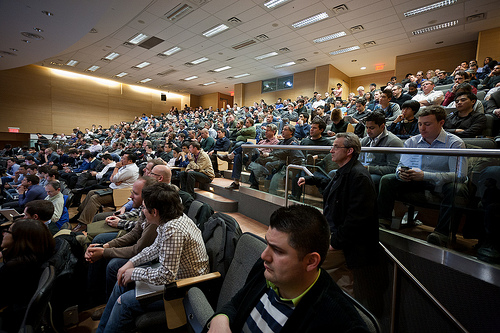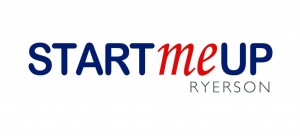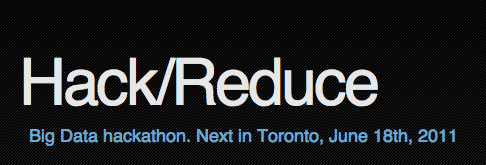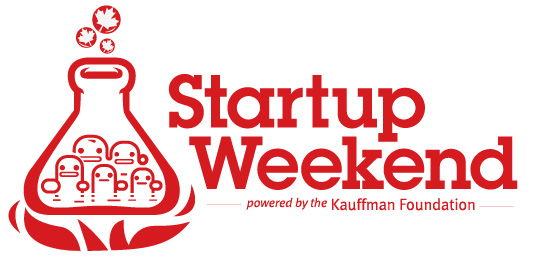
![]()
![]()
![]() Some rights reserved photo by Andrew Louis (@hyfen)
Some rights reserved photo by Andrew Louis (@hyfen)
DemoCampToronto # 29 – The Dirty Details #dct
- Date:
- June 9, 2011
- Time:
- 6:30 – 9 PM EST
- Location:
- Ted Rogers School of Management, Ryerson University, 55 Dundas St W, Toronto, ON
- Register to attend:
Keynote Speaker – Howard Lindzon
 Howard Lindzon is co-founder and CEO of StockTwits® – a social network for traders and investors to share real-time ideas and information. StockTwits was recently named “one of the top 10 most innovative companies in web” by FastCompany and one of the “50 best websites” by Time magazine.
Howard Lindzon is co-founder and CEO of StockTwits® – a social network for traders and investors to share real-time ideas and information. StockTwits was recently named “one of the top 10 most innovative companies in web” by FastCompany and one of the “50 best websites” by Time magazine.
Mr. Lindzon has more than twenty years experience in the financial community acting in both an entrepreneurial and investing capacity. With a unique vision for starting and successfully managing innovative companies, he is the Managing Partner of Social Leverage, a holding company that invests in early stage web businesses. Howard continues to manage a hedge fund he started in 1998.
He created Wallstrip, and more than 400 original web video shows, which was purchased by CBS Corp. in 2007. He is an active angel with many success angel investments including: Rent.com, (purchased by Ebay in 2005 for $415 million), Golfnow.com (purchased by Comcast in June 2008), and Lifelock (lead investors include Bessemer Venture Partners and Kleiner Perkins Caufield & Byers). Mr. Lindzon’s new media and internet business investments also include: Limos.com, Blogtalkradio.com, Buddy Media, Ticketfly, Assistly, Bit.ly and Tweetdeck.
Mr. Lindzon received an MBA at Arizona State University and an MIM from The American Graduate School of International Management.
We are looking for amazing entrepreneurs & demos
The goal at DemoCamp has been to provide a platform for local companies to launch, get product or pitch feedback, to establish a presence for recruiting, to help with PR and social media awareness. We try to get a group of highly connected and apparently highly cynical entrepreneurs, developers, designers, marketers, investors and others in a room to watch entrepreneurs in a safe environment. It’s something between a graduate seminar and a show. The goal is to demo your product and get feedback about your demo, your design, your market, etc. You decide. (It’s a work in progress, but it’s a social event).
We’re also looking for up to 5 startups or entrepreneurs to demo a new technology. Selected presenters get 5 minutes to show us the best of their application and then ask the audience for feedback, coaching, and insight from a highly connected cynical crowd. You get market advice, technology advice, pitch/presentation advice. Startups seeking advice should apply to demo.
Sponsors
We need a few sponsors to help cover the cost of food and travel. If you are looking for coverage in the newsletter, blog and at the event ping me at david at davidcrow dot ca for details. Sponsorships start at $500.













 This June’s event will have a strong focus on lean startup principles. A fantastic set of speakers are lined up to provide practical advice so you can take what you learn well beyond the weekend itself. While there is no “right” way to start a company, Startup Weekend is here to help provide you with as many tools and connections as possible to help you succeed.
This June’s event will have a strong focus on lean startup principles. A fantastic set of speakers are lined up to provide practical advice so you can take what you learn well beyond the weekend itself. While there is no “right” way to start a company, Startup Weekend is here to help provide you with as many tools and connections as possible to help you succeed.